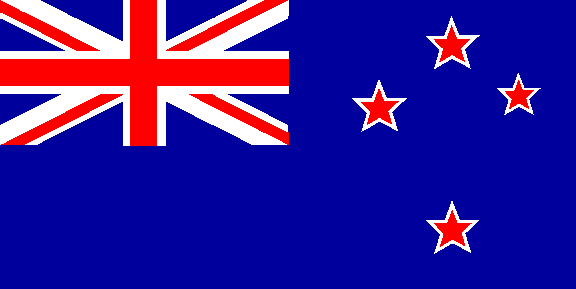The Madrid Protocol, a treaty that permits streamlined trademark applications in multiple countries, continues to expand. The U.S. joined in 2003 and has seen a strong growth in application both coming into the U.S. from other members and originating in the U.S. Here are a few updates on countries that will soon be active members of the Madrid Protocol–and thus available for easier trademark procedures from within all other Madrid Protocol member states, including the U.S.
New Zealand. In early September 2011, the New Zealand legislature passed a bill that included language to amend the Trade Marks Act 2002 to join the Nice Agreement, the Singapore Treaty, and the Madrid Protocol. (The Nice Agreement controls how goods and services are characterized; this is also a helpful change for New Zealand, leaving Canada as about the only major economy that does not use the Nice Agreement.) It’s unclear how quickly New Zealand will begin accepting Madrid Protocol-based application from other countries, but the process is underway.
India. Legislation passed in 2009 permitting India to join the Madrid Protocol. The bill was passed by Rajya Sabha (the House of States) on August 10, 2010. However, the law has not yet been implemented and it’s not clear exactly when it will be. As in many countries (including the U.S. 10 years ago), the transition to the requirements of the Madrid Protocol can be daunting for national trademark offices. In the case of India, it’s said that the infrastructure of the trademark office (presumably computer systems, databases, etc.) must also be upgraded to handle Madrid-based trademark applications.
Colombia. As of summer 2011, the House of Representatives and Senate of Colombia had both approved a bill for accession to the Madrid Protocol. Approval from the President and Constitutional Court are still required, but it appears certain that Colombia will accede to the Protocol quite soon. Colombia and Brazil are vying for status as the first Latin American country to accede to the Protocol, but progress in Brazil has been less definite. Argentina is also worked towards joining.
Others are also moving towards the Madrid Protocol. Thailand has been working towards this goal since 2005, though a date certain for accession has not been forecast. In 2009, Egypt, Liberia, Sudan, and Bosnia and Herzegovina joined; in 2010, Kazakhstan joined. A complete list, updated regularly, can be found at WIPO: http://www.wipo.int/export/sites/www/treaties/en/documents/pdf/madrid_marks.pdf.
Trademark owners are generally very supportive of moves to join the Madrid Protocol. Although it isn’t appropriate for all trademark applications, it is widely used by owners with large trademark portfolios and typically saves tens of thousands of dollars each year. Yet, trademark attorneys and other professionals may prefer that their country of residence not join the Madrid Protocol. The reason is simple: once part of the Madrid Protocol, foreign companies can often bypass them when seeking a trademark registration in their country. At least in the first instance. As with the U.S., local assistance is often needed to complete the registration process because of differences in the laws of each country, notwithstanding the harmonization benefits of the Madrid System.
